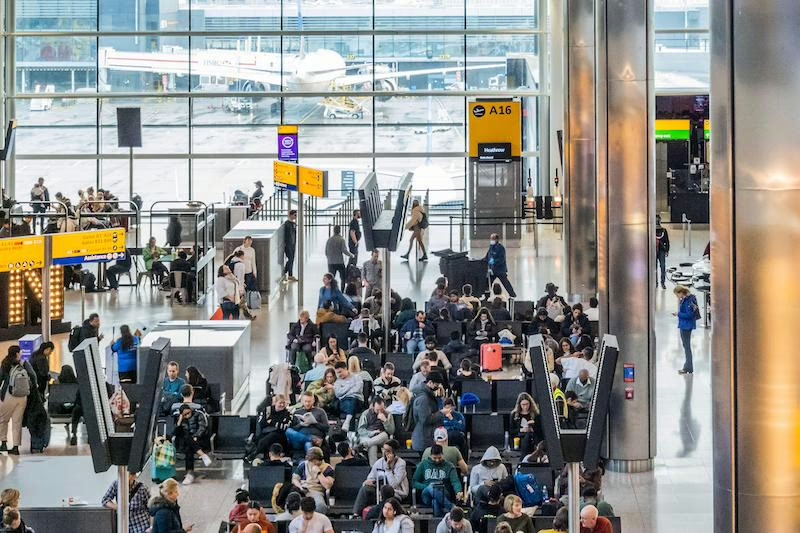
LONDON—London Heathrow Airport has expressed its displeasure at the UK Civil Aviation Authority’s (CAA) final determination on charges the airport can impose on airlines for the next four years.
The CAA decided to cut the amount Heathrow can charge airlines for each passenger using the London hub.
Heathrow’s charges have caused considerable friction with airlines for years, with carriers describing the airport as one of the most expensive globally into which they operate.
The CAA said March 8 that charges for 2023 will remain fixed at the level set out in its interim decision earlier this year: £31.57 ($37.36) per passenger. Average maximum price per passenger will then fall by about 20% to £25.43 per passenger in 2024 and will remain broadly at that level until the end of 2026.
The regulator said that the lower level of charges from 2024 was recognition that passenger volumes were expected to return to pre-pandemic levels and should benefit passengers in terms of lower costs, while allowing Heathrow to continue investing in facilities for passengers and supporting its ability to finance its operations.
“We have carefully considered the sharply differing views from Heathrow Airport Limited and the airlines,” CAA CEO Richard Moriarty said.
“Understandably, their respective shareholder interests lead the airport to argue for higher charges and the airlines to argue for lower charges,” he continued. “Our job is to reach an independent decision from these conflicting commercial interests and focus on what is in the best interests for the traveling public that will use Heathrow in the years to come.”
The airport, which is considering its response to the decision, issued a curt statement: “The CAA has chosen to cut airport charges to their lowest real terms level in a decade at a time when airlines are making massive profits and Heathrow remains loss-making because of fewer passengers and higher financing costs.”
Heathrow said the decision “makes no sense and will do nothing for consumers at a time when the CAA should be incentivizing investment to rebuild service.” The airport added it will now take some time to “carefully consider our next steps.”
Illustrating the fine line the CAA has trodden in determining the new price levels, IATA also expressed reservations.
“The marginal improvement in the settlement shows we were right to push the CAA not to take Heathrow’s outrageous claims at face value,” IATA DG Willie Walsh said. “But let’s be clear, the CAA is still hostage to Heathrow’s pessimistic passenger outlook, and airlines and passengers will continue to pay one of the highest airport charges in the world.”
Walsh said the present model for deciding the charges and incentivizing better performance at Heathrow needs a fundamental review. “We have a short window before we have to go through this again,” he said. “The UK cannot afford for this situation to continue if it wants to ensure a competitive level of charges that will benefit passengers and improve the connectivity of its only hub airport.”
Walsh said that IATA would be watching Heathrow’s performance over the summer peak period and beyond very closely. “Any repeat of the failures we have seen over the past few years would be totally unacceptable,” Walsh added.
Virgin Atlantic, one of Heathrow’s main users, also expressed continued concerns. “After nearly two years of consultation and an abundance of evidence that supports a significantly lower price cap, the CAA has finally adjusted course,” CEO Shai Weiss said. “However, an average cap of £27.49 until 2026, adjusted for inflation, still penalizes passengers at the world’s most expensive airport, which by its own admission, grew more than any other airport last year. The CAA has not gone far enough to push back on a monopolistic Heathrow and fulfil its statutory duty to protect consumers. Heathrow has abused its power throughout this process, peddling false narratives and flawed passenger forecasts in an attempt to win an economic argument.”
The CAA noted that the financial settlement includes a £3.6 billion capital investment program that will include next-generation security scanners and a new baggage system in Terminal 2. These projects, collectively expected to cost around £1.3 billion, “should bring considerable passenger benefits,” the CAA said.
“The arrangements also incentivize Heathrow to provide a good quality service for passengers and include a suite of measures, targets, and incentives to capture the main aspects of airport operation services that are important to consumers,” the CAA said. “This includes retaining some current measures such as time waiting in security queues, but also now includes new measures such as helpfulness/attitude of security staff, Wi-Fi performance, availability of check-in infrastructure, as well as hygiene safety testing and more.”
